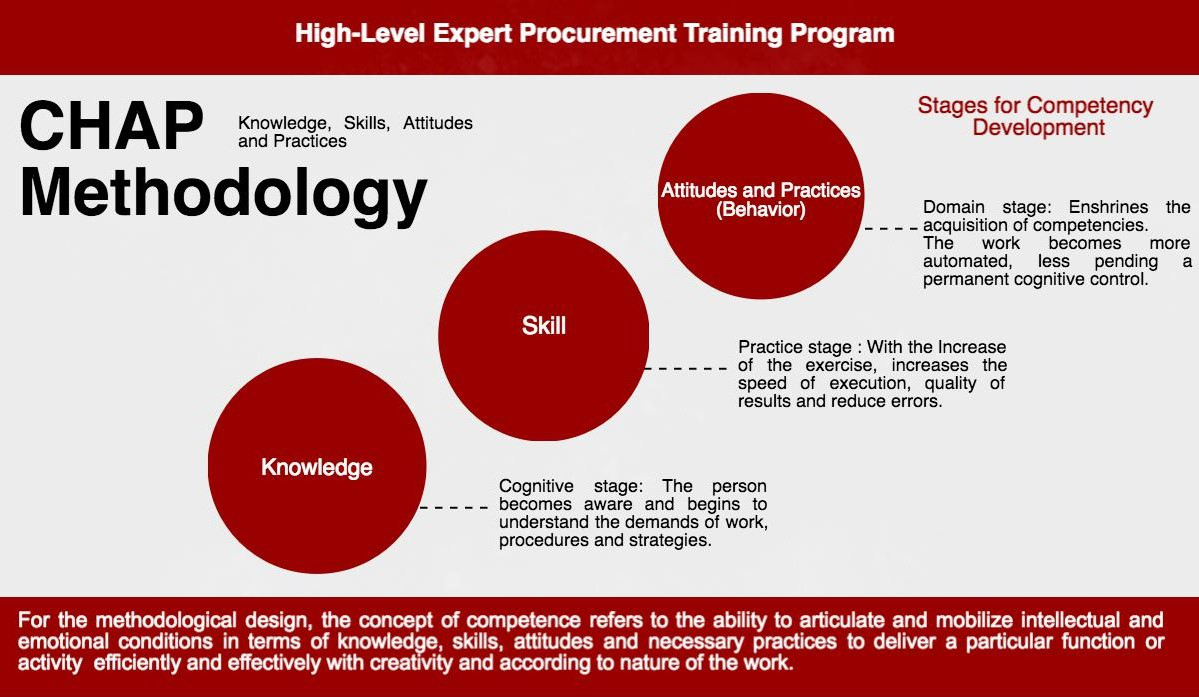Francisco Rodriguez & Maria Carolina Hoyos Lievano
Sr Procurement Specialist | Consultant Solutions and Innovations in Procurement, Governance Global Practice, World Bank

 Peru's public spending makes up about 23% of its gross domestic product (GDP) and its investments in infrastructure, education and health are complex and require budgeting, clear rules and efficient systems to be properly managed. It is also important that Government Procurement Officers are trained on modern procurement principles, policies and techniques to meet the development commitments made by countries and to respond to an increasingly active citizen oversight. These professionals also need to understand the different investment environments, including initiatives with the private sector and vulnerable communities.
Peru's public spending makes up about 23% of its gross domestic product (GDP) and its investments in infrastructure, education and health are complex and require budgeting, clear rules and efficient systems to be properly managed. It is also important that Government Procurement Officers are trained on modern procurement principles, policies and techniques to meet the development commitments made by countries and to respond to an increasingly active citizen oversight. These professionals also need to understand the different investment environments, including initiatives with the private sector and vulnerable communities.
To meet these challenges, the Government of Peru and the World Bank signed a Grant Agreement in October 2012 to implement the High-Level Expert Procurement Training Program.
The first milestone of the program included the development of a methodology for the selection of participating agencies and candidates. The following aspects were taken into account:
- The role of the agency (regulation, operators, control and trainers)
- The role of the official (possibility to influence public policy, decision-makers and representatives of their agency in interagency meetings)
- Institutional potential of the operating entity:
- Budget execution in the last five years
- Progress in institutional reforms (regional directorates turned into management units; strengthening the strategic planning process; strengthening the management of public investment; pilot reform in priority sectors; creation of decentralized multi-sectoral implementation units; public managers in key units)
- Forecast level of strategic investments - both productive and social (hospitals, schools) - emphasizing infrastructure
With this methodology, 32 officials from 9 government agencies were selected to participate in a training pilot.
The program's second achievement was the development of an academic program using the CHAP (acronym for its initials in Spanish) training approach, where the capacity stages are identified based on knowledge, skills, attitudes and practices.

The pilot program was divided into three courses for each of the three specialties of the operators of the National Public Procurement System: Pre-contract, contract administration, and procurement audit. It included, among others, the following specific topics:
- Managing for results and public procurement
- Procurement strategies and market analysis
- Selecting the best method to approach the market
- Public private partnerships
- Cycle management and administration of public procurement
- Risk management, operation and closure of public contracts
- Internal control and audit in public procurement
- Concurrent audits (fraud and forensic) in public procurement
- Establishment of audit committees
The three courses were delivered face to face, with the support of a virtual platform and a competency assessment approach. Participants received a certificate issued by the Supervisory Agency for State Procurement (OSCE) and a Master Certificate in Results-Oriented Government Procurement issued by Laval University (Canada) and the IDEA Institute.
The guiding principle underlying the program is that the Procurement Officer must always deliver the highest possible value for taxpayers' money. With this principle in mind, each course aimed to develop skills with a focus on results in the service of citizens, managing procurement effectively and efficiently, while harnessing international best practices and innovative methods.
After the methodology for selecting beneficiaries and the Program were designed and tested, the third achievement was the design of the Program's sustainability strategy, based on the cooperation between OSCE and partner universities. Program funding is shared: OSCE will fund the technical assistance and the partner universities the operational, logistics and infrastructure costs. The instructors will be international experts as well as national experts (change agents) who benefited from the pilot and would participate as tutors.
So far, the Program has focused on public officials from the Ministries at the national level. The challenge for the future is to ensure the Program continues as part of the modernization of public administration in Peru and to expand its coverage to the regions, in order to support the management of decentralized investments and bring increased management capabilities to the local level.
For more information, contact Francisco Rodriguez or Maria Carolina Hoyos Lievano
